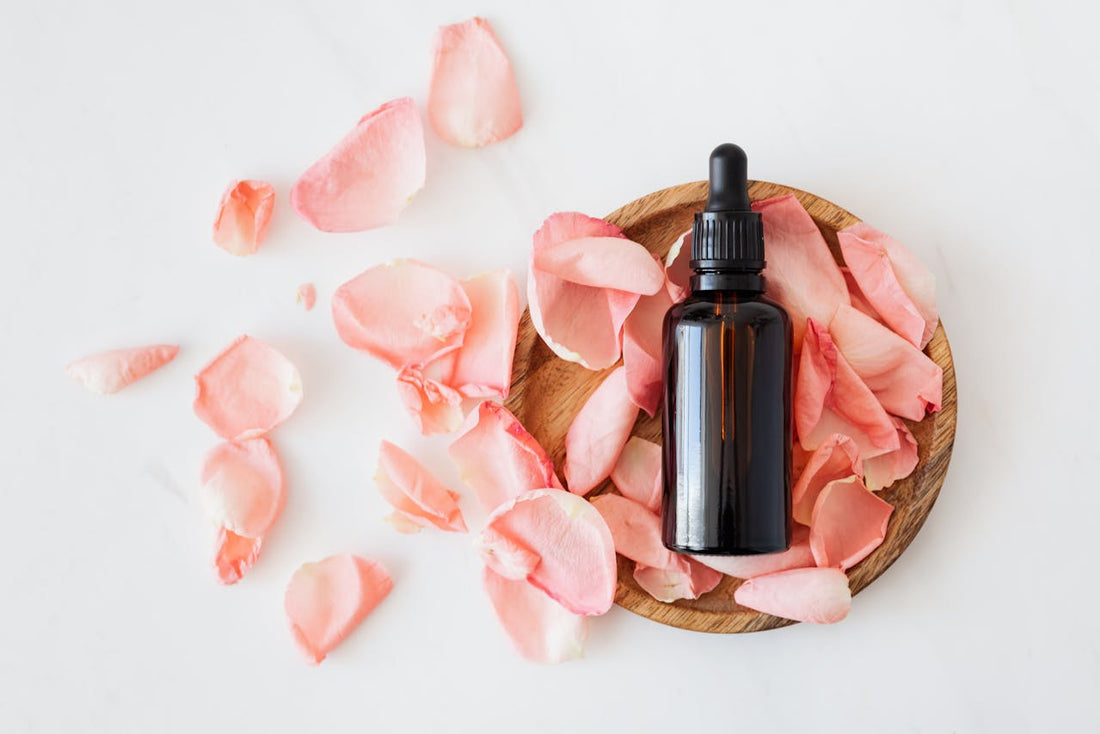Argan oil, often referred to as “liquid gold,” has gained immense popularity in the beauty and wellness industries for its remarkable benefits. Extracted from the kernels of the argan tree (Argania spinosa), native to Morocco, this oil is a powerhouse of nutrients, antioxidants, and fatty acids.
But what makes argan oil a miracle elixir for beauty and health? Let’s dive into its uses, benefits, and precautions to uncover why it deserves a place in your daily routine.
What is Argan Oil?
Argan oil is a natural oil derived from the seeds of the argan tree. Known for its rich composition of vitamin E (tocopherols), fatty acids like oleic and linoleic acids, and powerful antioxidants, it is used in both culinary and cosmetic applications. Traditionally, Moroccan communities used argan oil for cooking, skincare, and even medicinal purposes.
Today, argan oil is celebrated worldwide as an essential ingredient in skincare, hair care, and dietary supplements.
There are two primary types of argan oil:
- Culinary Argan Oil: Used in cooking, this version is roasted for a nutty flavor and is a rich source of vitamin E, antioxidants, and healthy fats.
- Organic Moroccan Argan Oil: Unroasted and cold-pressed, this oil is used for skincare, haircare, and nail treatments.
Infographic Image-
Additional Information
Saturated and unsaturated fatty acids (including oleic and linoleic acid), squalene, phytosterols, polyphenols, tocopherols (vitamin E), melatonin, and coenzyme Q10 are the active components. Two more names are lyciodes, candolleanum oil, lyciodes spinosum oil, argania nut oil, argania spinosa kernel oil, and argania sideroxylon oil.
Over-the-counter (OTC) supplements are legal in the United States.
The recommended dosage is 10 drops given topically once a day for eight weeks, or 25 milliliters taken orally.
Safety factors to consider: quite well tolerated in general.
The Benefits of Argan Oil
Argan oil’s versatility and nutrient-rich profile make it an invaluable addition to both your beauty regimen and your diet. Here’s a quick summary of its benefits:
- Skin: Moisturizes, fights aging, and heals various skin conditions.
- Heart: Promotes heart health by improving cholesterol levels.
- Joints: Reduces pain and stiffness in knee osteoarthritis.
- Overall Health: Shows potential for managing diabetes, improving liver and kidney function, and even combating depression.
Promotes Skin Health and Combats Aging
Argan oil is a powerhouse of antioxidants, including oleic acid, linoleic acid, and vitamin E, which protect the skin from free radical damage, a key factor in premature aging. Its high fatty acid content not only helps maintain skin elasticity but also provides deep hydration, keeping your skin smooth, soft, and radiant.
How Does Argan Oil Benefits Skin?
Clinical studies reveal that consuming 25 milliliters (ml) of argan oil daily or applying just a few drops to the skin for eight weeks significantly improves skin hydration and elasticity. These benefits are especially effective in postmenopausal individuals, whose skin naturally loses elasticity over time.
Key advantages include:
- Intense Moisturization: Ideal for dry and flaky skin, providing long-lasting hydration.
- Reduction in Fine Lines and Wrinkles: Regular use visibly reduces signs of aging, giving the skin a youthful appearance.
- UV Protection: The antioxidants in argan oil provide a barrier against harmful ultraviolet rays, preventing sun damage and pigmentation.
- Healing Properties: It soothes conditions like eczema, psoriasis, and mild acne by reducing inflammation and promoting skin regeneration.
Pro Tip: Apply argan oil at night for overnight repair or mix it with your daily moisturizer to enhance hydration and fight aging.

Supports Heart Health
Argan oil is not just for cosmetic use—it’s also a heart-healthy dietary fat. Being a polyunsaturated fat, it can help lower the risk of cardiovascular diseases. Its nutrient profile includes oleic acid, a monounsaturated fat that has been linked to improving heart health.
Research-Backed Benefits
A systematic review found that incorporating argan oil into your diet:
- Lowers bad cholesterol (LDL) and triglycerides, reducing the risk of arterial blockages.
- Increases good cholesterol (HDL), which protects against heart diseases.
- Promotes overall cardiovascular health when consumed regularly.
You can use argan oil as a cooking oil or drizzle it over your favorite salads, roasted vegetables, or grilled fish for a nutty, flavorful boost to your meals.
Fun Fact: Argan oil is a staple in Moroccan cuisine, where it’s often paired with bread or used as a finishing oil to add depth to dishes.
Relieves Knee Osteoarthritis
Knee osteoarthritis (KOA) is a common condition that affects millions of people worldwide, causing pain and limiting mobility. Research shows that argan oil can offer relief for individuals suffering from this condition.
Clinical Evidence
A study involving 100 participants found that consuming 30 ml of argan oil daily for eight weeks significantly improved joint pain, mobility, and walking distance. These effects are attributed to argan oil’s powerful anti-inflammatory properties, which help reduce swelling and stiffness in the joints.
While more large-scale studies are needed, argan oil shows promise as a natural and safe supplement for managing arthritis symptoms.
How to Use: Add argan oil to your daily meals or take it as a supplement after consulting a healthcare provider.
Additional Promising Uses of Argan Oil
Beyond its established benefits for skin, heart health, and arthritis, argan oil is being studied for its potential role in addressing several other health conditions. Although more research is required, early findings are highly encouraging.
Emerging Benefits
- Managing Diabetes and Metabolic Syndrome: Argan oil may help regulate blood sugar levels and improve insulin sensitivity, potentially reducing the risk of diabetes and related complications.
- Supporting Liver and Kidney Health: Its antioxidant content supports detoxification and protects these vital organs from oxidative stress.
- Combating Depression: Argan oil contains compounds that may support brain health and help alleviate mood disorders, though more studies are needed.
- Possible Cancer Prevention: The rich polyphenol and antioxidant content in argan oil are being explored for their ability to combat the growth of cancer cells.
Note: While these benefits are promising, it’s essential to consult your healthcare provider before using argan oil as a remedy for any medical condition.
How to Use Argan Oil?
For Skin
- Hydration: Apply 2–3 drops to cleansed skin before bedtime.
- Anti-aging: Use it as a serum or mix it with your moisturizer.
- Healing: Apply to minor wounds or inflamed areas for its anti-inflammatory properties.
For Hair
Although there is limited evidence to support its role in improving hair quality, anecdotal reports suggest that argan oil helps manage frizz, add shine, and protect hair from heat damage. Apply a few drops to the ends of damp hair or use it as an overnight treatment.
For Cooking
When used in the kitchen, culinary-grade argan oil offers a nutty flavor. Use it for drizzling over salads, grains, or roasted vegetables. Avoid high-heat cooking to preserve its nutrients.
Creative Uses of Argan Oil
- Lip Balm: Dab a drop on your lips for instant hydration.
- Highlighter: Mix a drop with your foundation or dab on your cheekbones for a natural glow.
- Makeup Remover: Use it to gently remove makeup while nourishing your skin.
- Foot Care: Apply to cracked heels and dry feet for soft, smooth results.
Precautions and Side Effects
Argan oil is generally safe for most people, but there are a few considerations to keep in mind:
While rare, argan oil may cause contact dermatitis in some individuals. Always conduct a patch test before applying it to your skin.
The high levels of tocopherols (vitamin E) in argan oil may interfere with blood-thinning medications, increasing the risk of bleeding. Consult your healthcare provider if you’re on such medications.
People with oily or acne-prone skin should use argan oil sparingly, as its moisturizing properties may not suit all skin types.
Dosage Recommendations
The appropriate dosage of argan oil depends on its intended use:
- For Skin Elasticity: Apply 10 drops daily or consume 25 ml orally for 8 weeks.
- For Arthritis Relief: Take 30 ml daily for 8 weeks.
- Always consult a healthcare professional before starting any supplement regimen.
How to Store Argan Oil?
To maintain its potency, store argan oil in a dark bottle in a cool, dry place. Avoid exposure to direct sunlight or heat, as these can degrade the oil. Properly stored argan oil can last up to 12 months for cosmetic use and 2 years for culinary use.
How to Choose High-Quality Argan Oil?
With the growing demand for argan oil, it’s important to choose a high-quality product. Look for:
- Cold-pressed oil for maximum nutrient retention.
- Products certified by third-party testing organizations like USP, ConsumerLab, or NSF.
- Glass packaging to prevent contamination and maintain freshness.
Be cautious of adulterated oils mixed with cheaper alternatives. Pure argan oil typically has a golden hue and a mild nutty aroma.

Why AF Imports?
At AF Imports, we understand the value of quality. Our argan oil is ethically sourced and handpicked to ensure you receive the best. Each bottle is crafted with care, ensuring purity, potency, and premium quality. Whether you’re looking for glowing skin, luscious hair, or a healthy addition to your diet, our argan oil is your ultimate companion.
Shop now at AF Imports and experience the magic of liquid gold today!
Conclusion
Argan oil’s versatility and rich nutrient profile make it an invaluable addition to both your beauty and wellness routines. From moisturizing skin to supporting heart health and relieving joint pain, this “liquid gold” has earned its place as a natural remedy. However, as with any supplement, consult your healthcare provider before use, and ensure you purchase high-quality products.
For a healthier and more radiant you, why not give argan oil a try today?
Frequently Asked Questions
There is no strong evidence to suggest that argan oil promotes hair growth. Oils like castor oil and coconut oil have more research backing their efficacy in hair care.
Yes, argan oil expires. For best results, store it in a cool, dark place and use it within its recommended shelf life.
While some reports suggest argan oil may increase skin elasticity, its effectiveness in reducing stretch marks is not well-supported by research.

